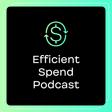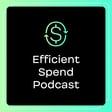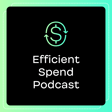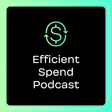
Allbirds Hyper-Growth, Profitable Spend, and High-Leverage Activities | Jim Kingsbury
SUBSCRIBE TO LEARN FROM PAID MARKETING EXPERTS 🔔
The Efficient Spend Podcast helps start-ups turn media spend into revenue. Learn how the world's top marketers are managing their media mix to drive growth!
About the Host: Paul is a paid marketing leader with 7+ years of experience optimizing marketing spend at venture-backed startups. He's driven over $100 million in revenue through paid media and is passionate about helping startups deploy marketing dollars to drive growth.
About the Guest: Jim Kingsbury is a Fractional CMO and E-commerce executive with deep expertise in customer acquisition, LTV growth, and digital product management. With a career spanning various high-profile brands, including a significant tenure at Allbirds during its hyper-growth phase, he has demonstrated a keen ability to drive growth through innovative marketing practices.
VISIT OUR WEBSITE: https://www.efficientspend.com/
CONNECT WITH PAUL: https://www.linkedin.com/in/paulkovalski/
CONNECT WITH JIM: https://www.linkedin.com/in/jimkingsbury/



